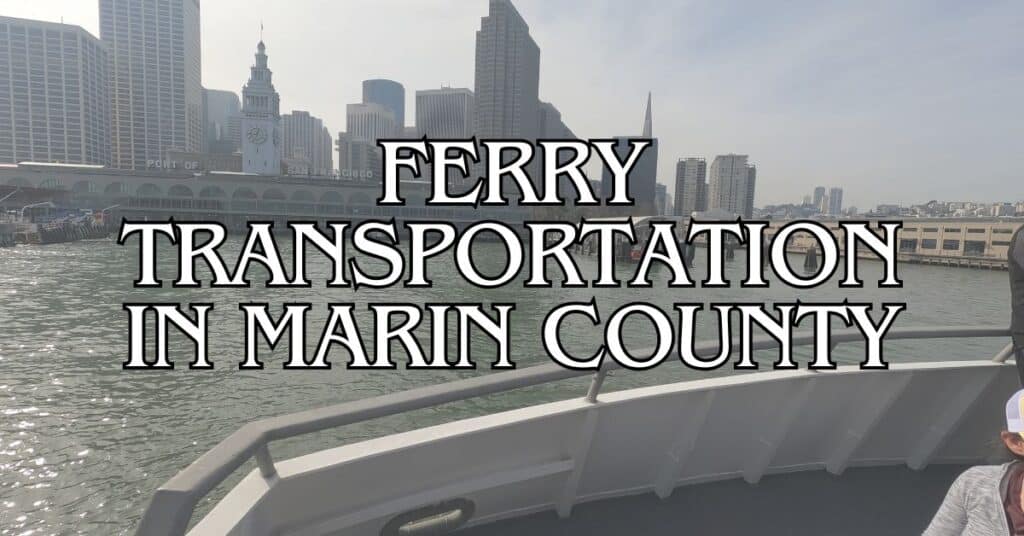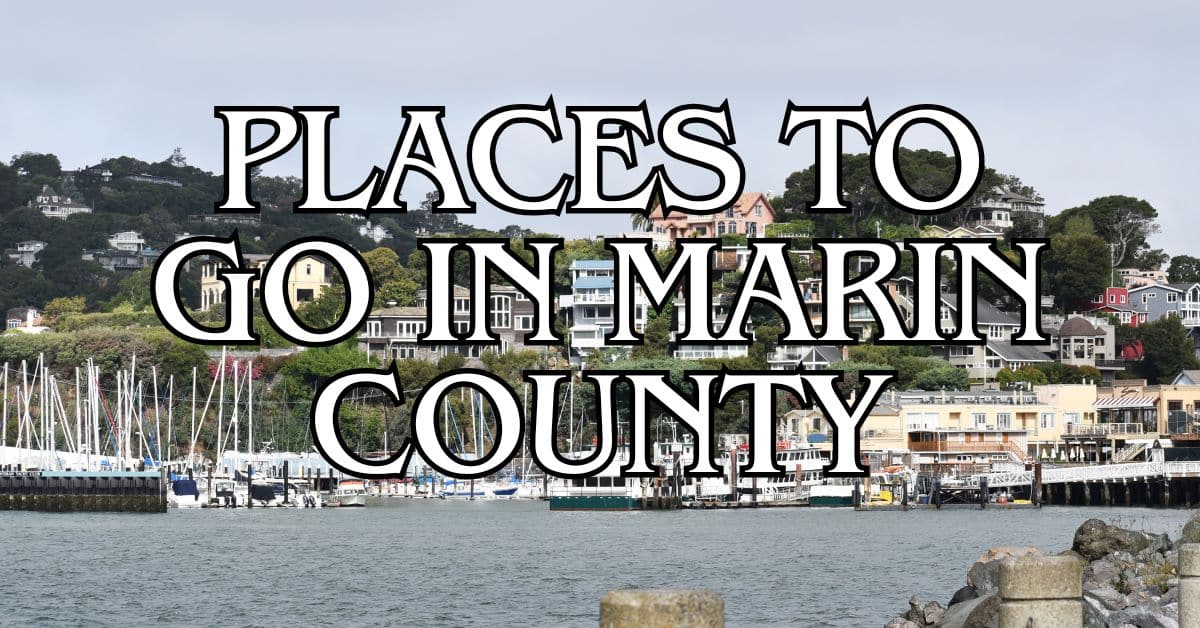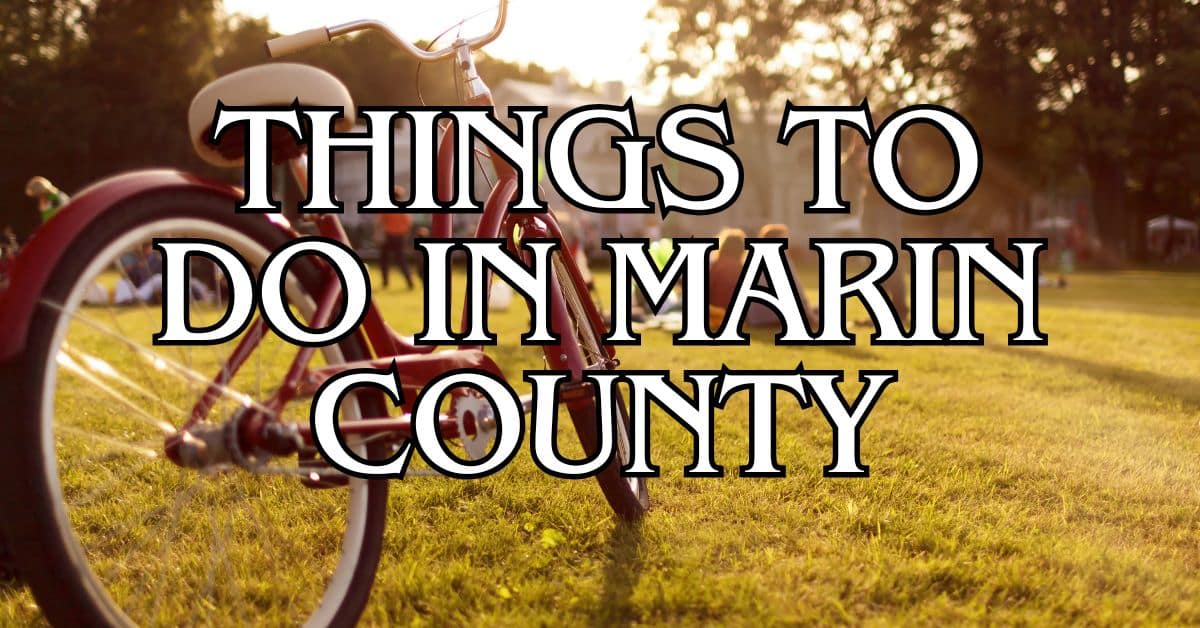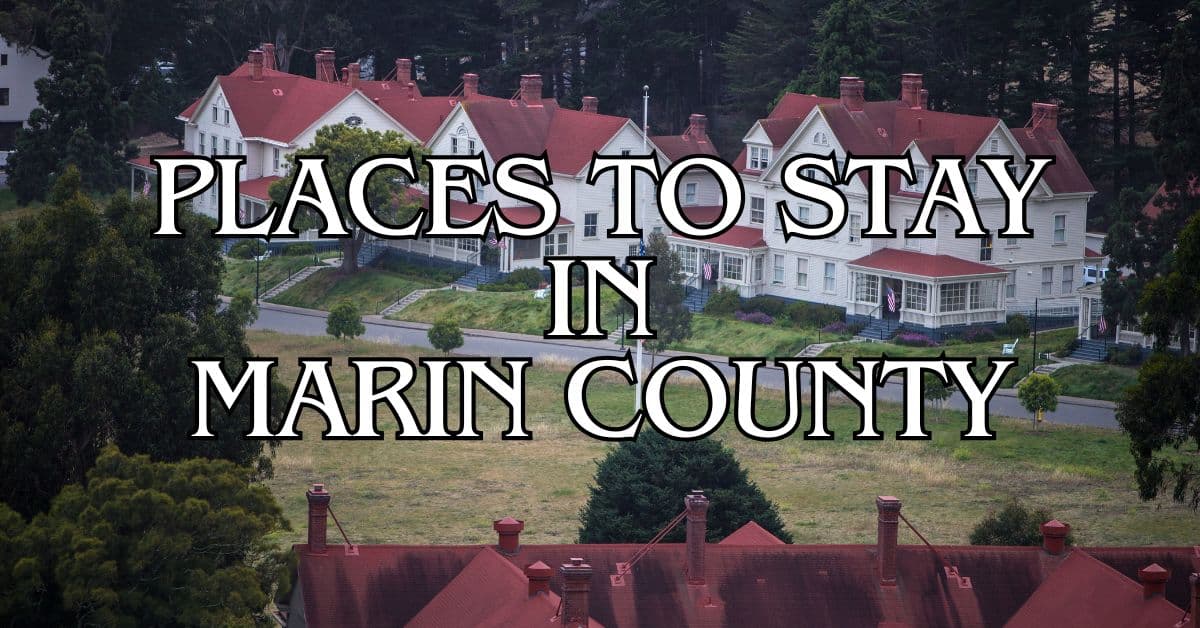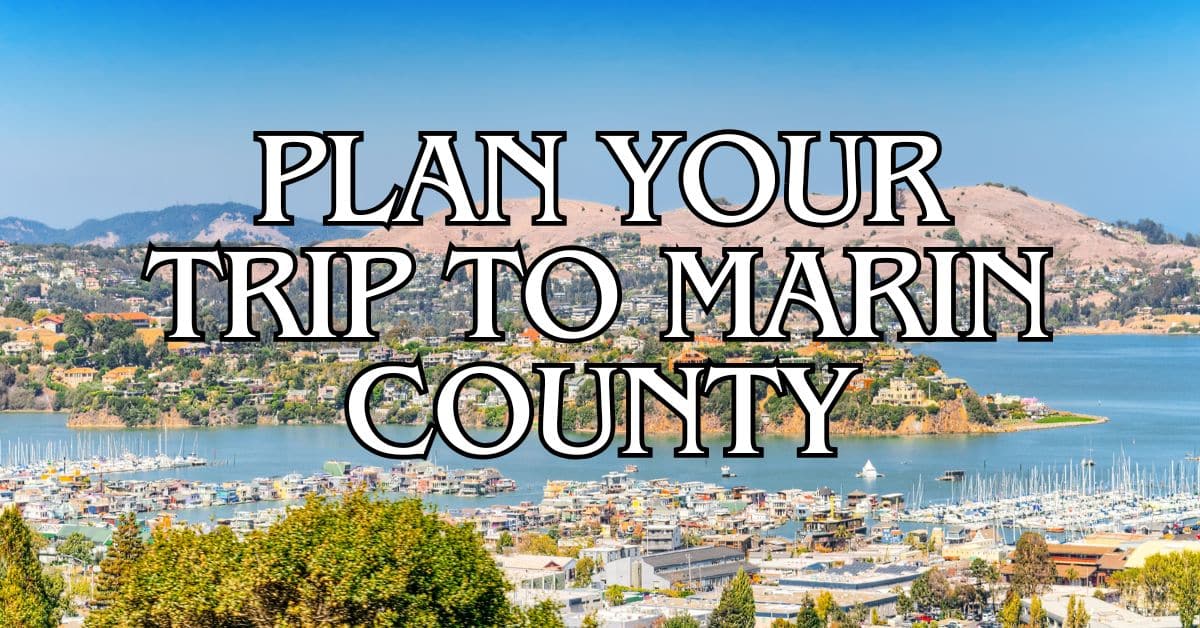Traveling between Marin County and San Francisco doesn’t have to mean crawling through bridge traffic. Ferries offer a laid-back alternative that a lot of commuters and visitors tend to forget about. Two main ferry operators—Golden Gate Ferry and Blue & Gold Fleet—run daily connections to San Francisco from Larkspur, Sausalito, and Tiburon terminals.
The ferry experience isn’t just about getting from A to B. It’s a chance to soak in those killer Bay views, see Alcatraz, and watch the San Francisco skyline drift closer. Most ferries run every day, but schedules change depending on the route and time. Fares vary by route and traveler type, so you’ll want to check before you go.
Discover hand-picked hotels and vacation homes tailored for every traveler. Skip booking fees and secure your dream stay today with real-time availability!
Browse Accommodations Now
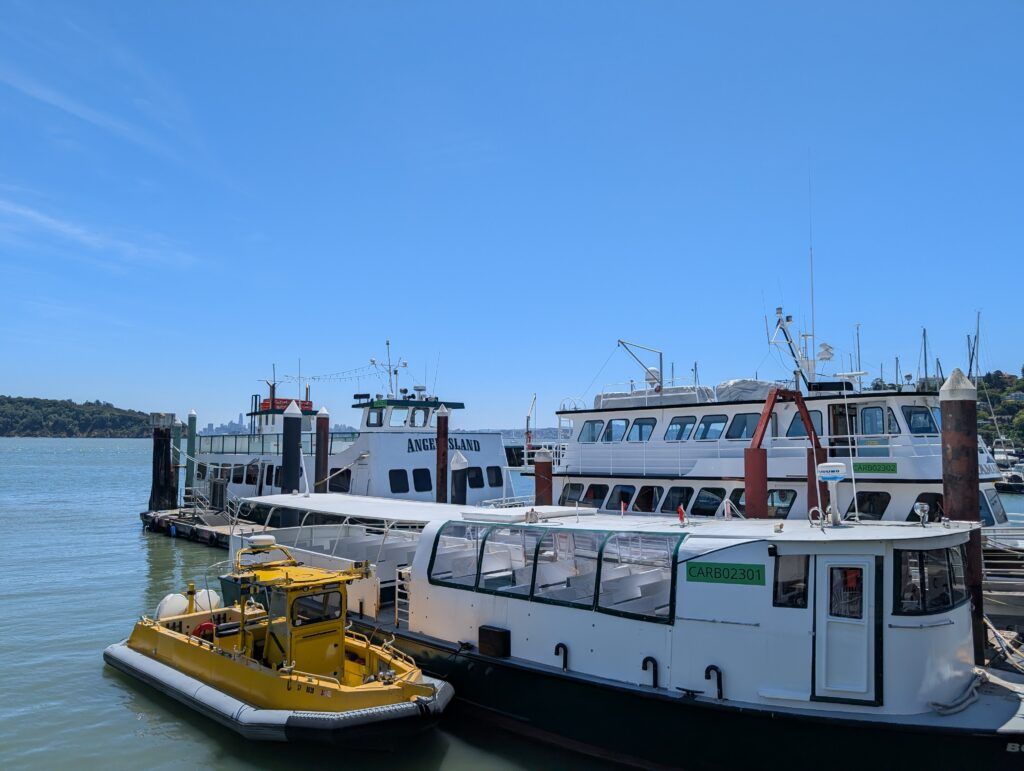
These ferry services don’t just shuttle people—they connect you to spots like Angel Island State Park and Oracle Park. The main landing is the San Francisco Ferry Terminal, right at the Embarcadero, so you can wander straight into downtown. Honestly, there’s something about that first breath of bay air and the gentle rocking of the boat that makes any trip into the city more memorable.
Overview of Ferry Transportation in Marin County
Ferry service is a big deal in Marin’s transit system, giving locals and visitors a way to reach San Francisco and beyond without driving. And let’s be real: the views from the water are some of the best you’ll find anywhere in Northern California.
Role of Ferries in Local Transit
Ferries are a lifesaver alternative to the headache of the Golden Gate Bridge. For plenty of commuters, hopping on the ferry means skipping gridlock and easing into the city stress-free. Ferry schedules tend to be reliable, unlike the unpredictable mess that can happen on the roads.
But ferries aren’t just about efficiency. They’re a chance to see the Bay Area from a different angle. On the ride, you’ll get jaw-dropping views of the Golden Gate Bridge, Alcatraz, and the city skyline.
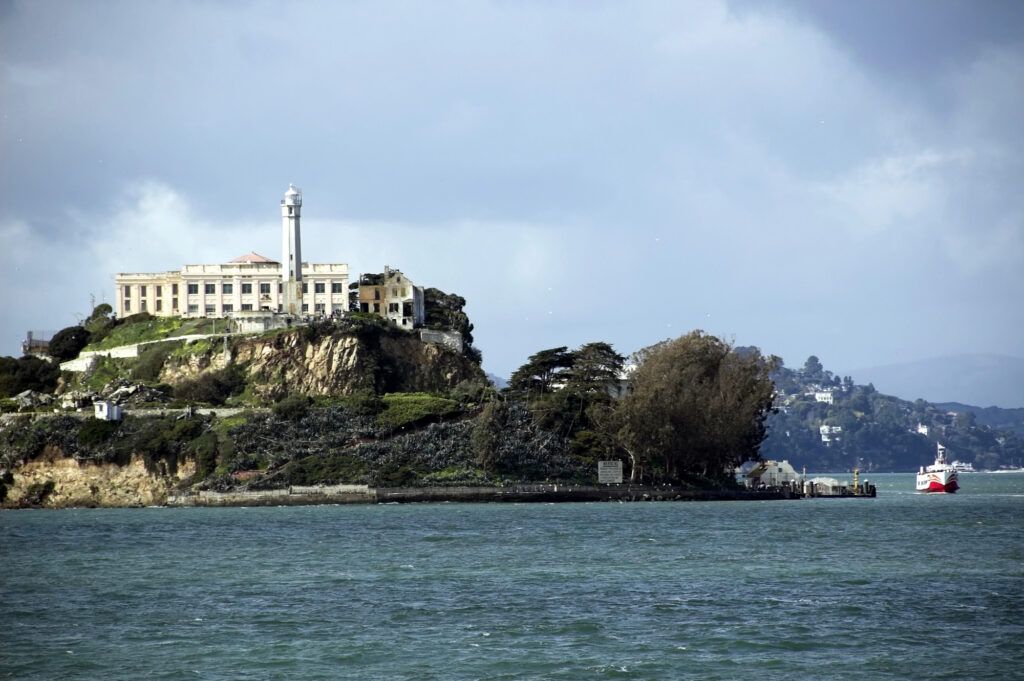
Every ferry trip means fewer cars on the road. These boats carry hundreds at a time, which helps cut down traffic and emissions. It’s a win for commuters and the environment.
Key Operators and Destinations
Here’s who’s running the show in Marin:
Golden Gate Ferry connects:
- Larkspur to San Francisco
- Sausalito to San Francisco
- Tiburon to San Francisco
San Francisco Bay Ferry covers:
- Tiburon to San Francisco
- Angel Island (seasonal)
Larkspur’s terminal is the biggest, right near shopping and with plenty of parking. It drops you in downtown San Francisco, steps from the Embarcadero.
Sausalito’s ferry is a favorite for tourists and cyclists—ride the bridge, then float back. Tiburon’s line ties this charming waterfront town to the city’s Ferry Building.
Importance to the Community
Ferries really connect Marin to the rest of the Bay Area. Locals get easier access to jobs, nightlife, and cultural events in San Francisco—without the parking nightmare.
Businesses near ferry stops see more foot traffic. Restaurants and shops in Sausalito and Tiburon thrive on visitors streaming in off the boats.
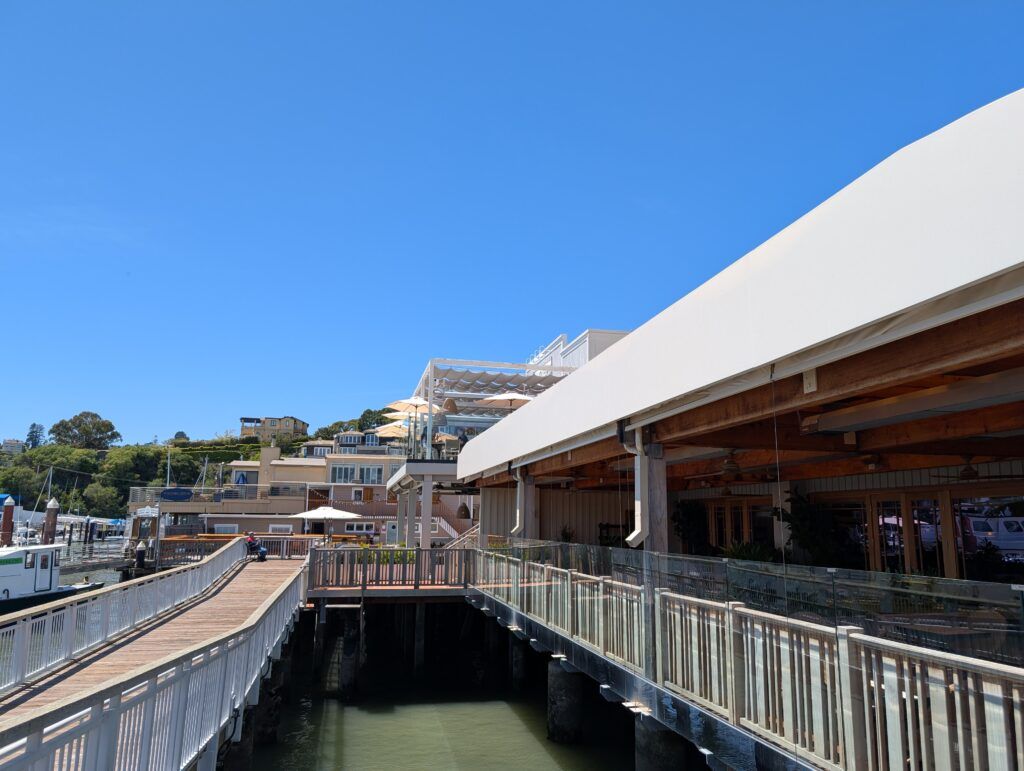
Living near a ferry terminal can bump up your property value, too. People love the idea of a quick, scenic commute.
When disasters strike—think earthquakes and closed bridges—ferries have stepped up. After the 1989 Loma Prieta quake, they were a lifeline for stranded commuters.
Major Ferry Routes and Terminals
Marin County’s got several main ferry routes to San Francisco and other Bay Area spots. These trips are practical, sure, but honestly, the scenery is half the fun.
Larkspur Ferry Terminal
You’ll find the Larkspur terminal at 101 E. Sir Francis Drake Blvd, just east of Highway 101. It’s Marin’s main ferry hub, with lots of parking and direct service to downtown San Francisco.
Larkspur ferries run every day, with more departures during weekday rush hours. The ride to the city usually takes about 30 minutes—often quicker than driving when traffic’s bad.
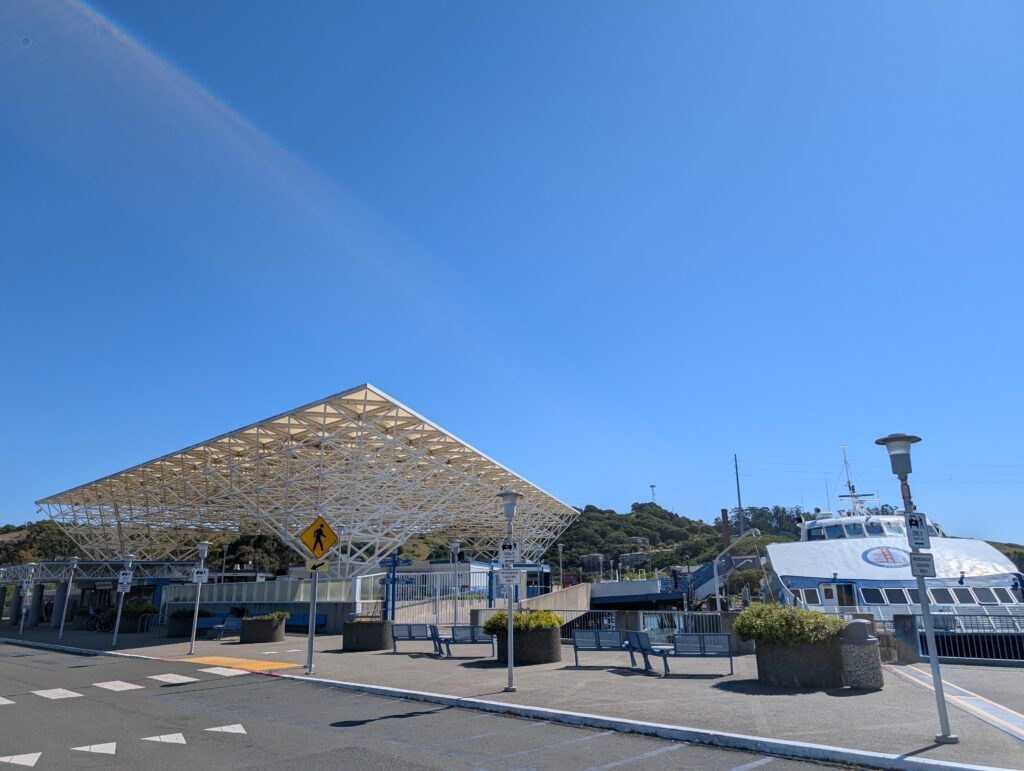
The terminal’s got a cafe, covered waiting, and bike racks. Buy tickets online or at the kiosks before you get on.
Commuters love Larkspur for its easy link to San Francisco’s Financial District. Marin’s bus system also connects right at the ferry building.
Sausalito Ferry Terminal
The Sausalito terminal sits at the north end of Bridgeway, steps from downtown’s shops and restaurants. This historic crossing is pretty much peak Bay Area scenery.
Ferries run all day between Sausalito and the Ferry Building. The trip’s about 30 minutes, with epic views of the Golden Gate, Alcatraz, and the skyline.
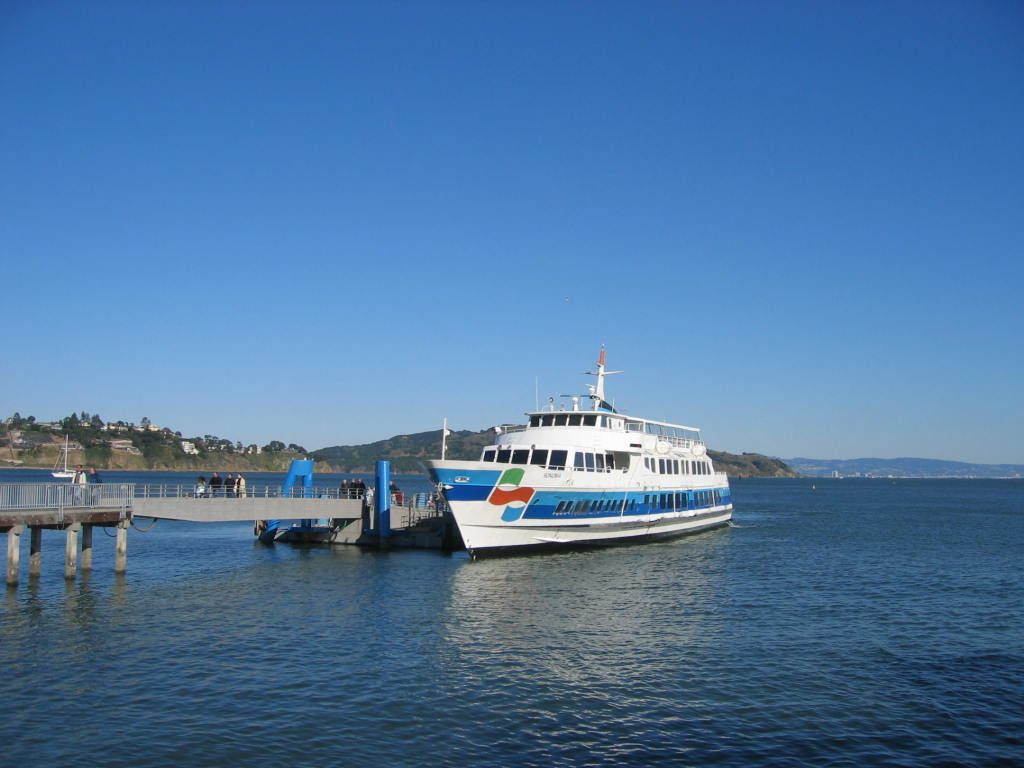
This route is a magnet for tourists and cyclists. You can bring your bike and skip the hassle of driving in either city.
There are ticket booths, restrooms, and plenty of food nearby. In summer and on weekends, expect crowds—Sausalito’s a classic day trip.
Tiburon Ferry Terminal
The Tiburon terminal sits at the end of Main Street in downtown Tiburon. It’s smaller, but connects to both San Francisco and Angel Island.
Ferries to San Francisco run daily and take about 20-25 minutes. The schedule isn’t as packed as Larkspur’s but still offers regular trips.
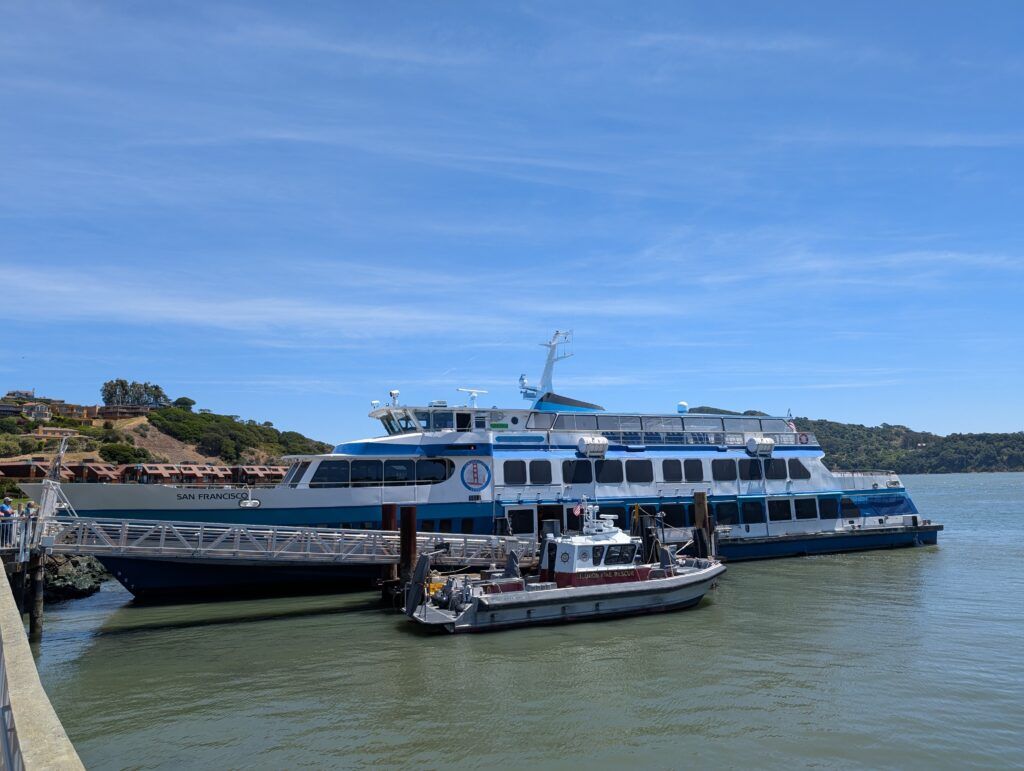
This spot is in the heart of Tiburon’s waterfront, with restaurants and shops all around. Parking is close, but it fills up fast on weekends.
Tiburon ferries are great for commuters and day-trippers. The ride gives you sweet views of Angel Island and the East Bay shoreline.
Angel Island Connections
Angel Island—the biggest island in the bay—is reachable by ferry from both Tiburon and San Francisco. The Tiburon-Angel Island ferry runs all year, with more trips in summer.
The crossing from Tiburon only takes about 10 minutes. Once you’re there, you can hike, bike, or hop on a tram to explore the island’s history and views.
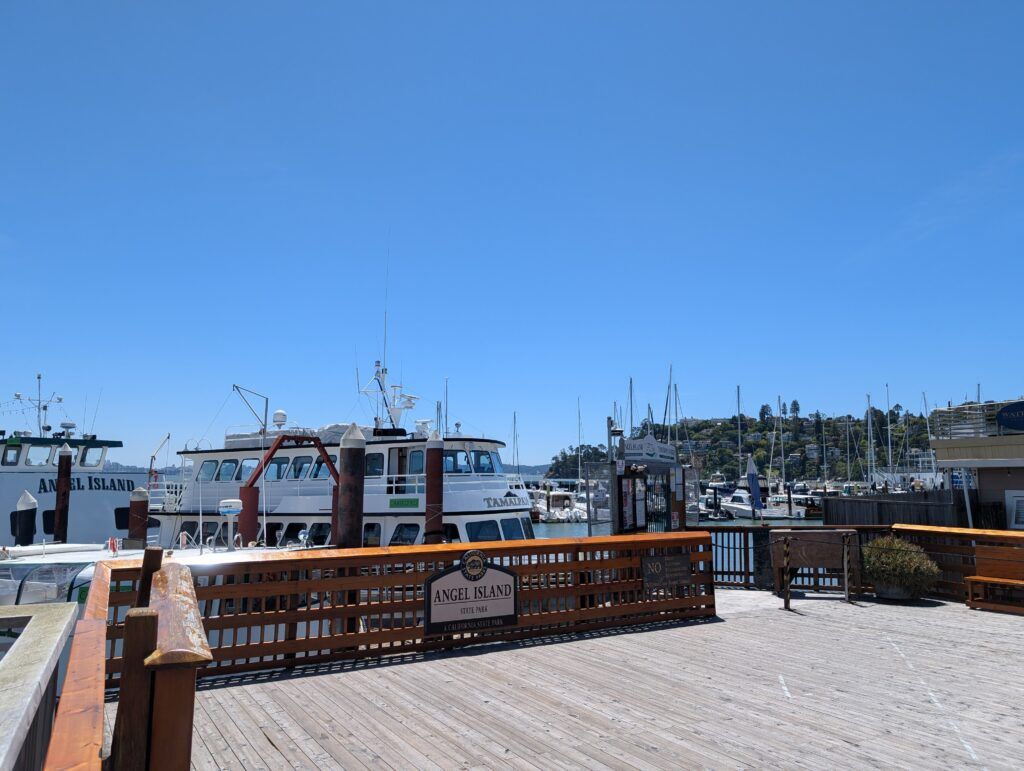
Schedules change by season, so check before you go, especially in the off-season.
The island’s got camping, picnic spots, and a cafe near the dock. Bring your own bike or rent one there to cruise the five-mile road around the island.
Connection to San Francisco and the Bay Area
Ferries from Marin are a lifeline to San Francisco and the rest of the Bay Area. Besides being practical, these rides offer a perspective on the bay you just can’t get from land.
Find the perfect hotel or vacation rental. Instant booking, no fees!
View Top Stays
San Francisco Ferry Building
The main San Francisco terminal for Marin ferries is the historic Ferry Building. Both Golden Gate Ferry and San Francisco Bay Ferry dock here, running service from Larkspur, Sausalito, and Tiburon. Boats run every day, with plenty of departures.
When you step off, you’re right inside the Ferry Building Marketplace. The old 1898 building is now packed with food stalls, restaurants, and a farmers market on certain days. There’s clear signage, ticket counters, and waiting spots with bay views.
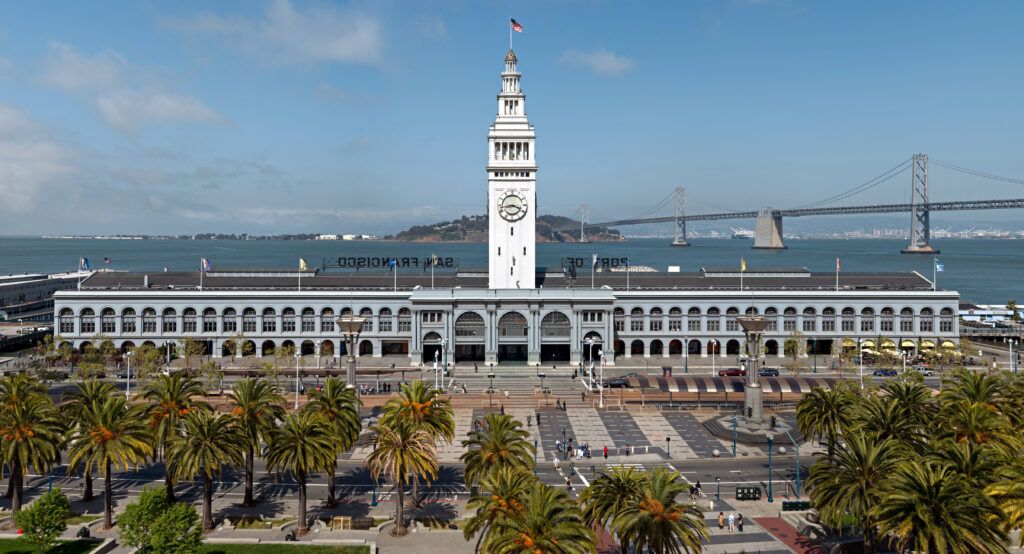
Travel times depend on where you’re coming from: about 30 minutes from Sausalito or Tiburon, 45 from Larkspur. Most ferries take Clipper cards, so connecting to other transit is easy.
The Embarcadero and Nearby Attractions
From the Ferry Building, you’re right on The Embarcadero, San Francisco’s waterfront boulevard. It’s a walkable stretch with lots to see within a mile or two.
Fisherman’s Wharf is about 1.5 miles north. You can walk, rent a bike, or hop on the F-Market streetcar along the water.
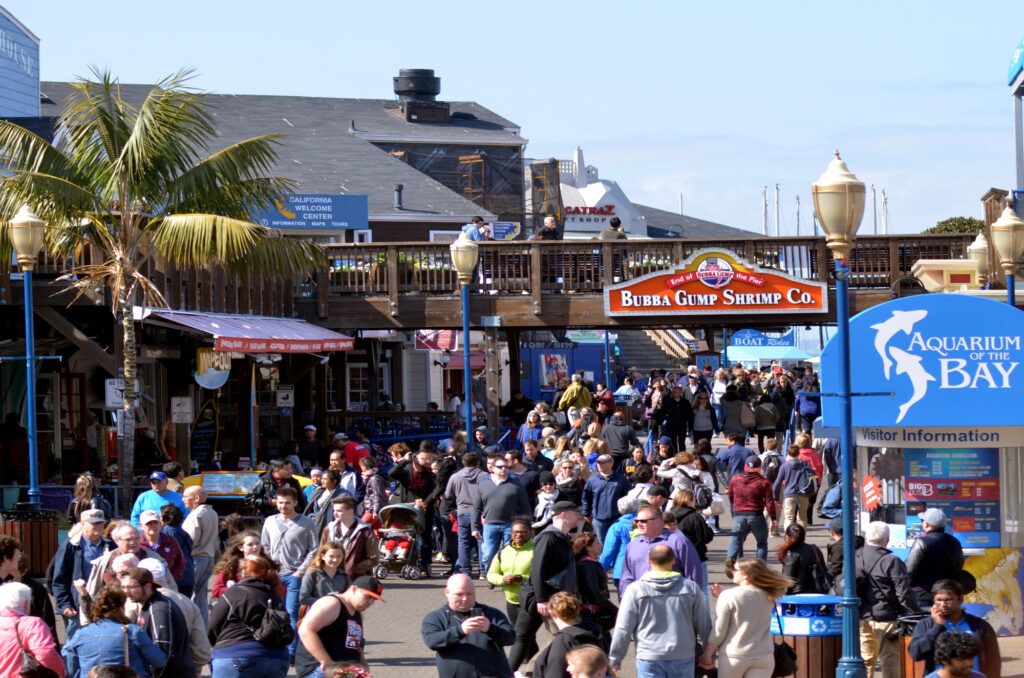
Alcatraz cruises leave from Pier 33, about a 15-minute stroll from the Ferry Building. Book ahead—those tours fill up fast.
The Exploratorium at Pier 15 is just a short walk away, full of hands-on science exhibits. Getting to downtown, Union Square (about a mile in), or Chinatown is easy with public transit connections.
Oracle Park and Chase Center Access
Getting to San Francisco’s sports and concert venues is a breeze by ferry. Oracle Park, home of the Giants, is right on the water at 24 Willie Mays Plaza.
During baseball season, special game-day ferries run straight from Larkspur to Oracle Park. You can skip the parking scramble. Or, it’s a 20-minute walk south from the Ferry Building if you’re up for it.
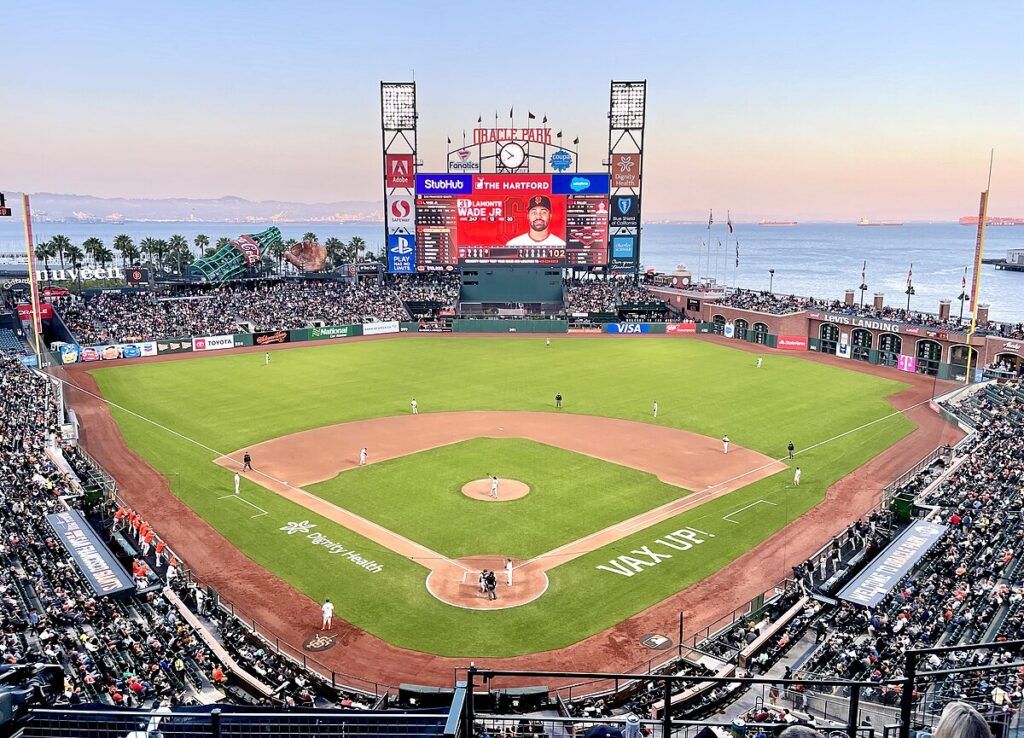
Chase Center, where the Warriors play, opened in Mission Bay in 2019. It’s not right on the water, but it’s about 1.5 miles from the Ferry Building. Get there by Muni T-Line or rideshare.
Both spots host concerts and big events all year. Ferry schedules usually ramp up for these, and sometimes you’ll find late-night boats after the game or show.
Ferry Schedules and Service Frequency
Marin’s ferries run on set schedules that change with the route, day, and season. Knowing the times can save you from standing around at the terminal longer than you’d like.
Regular Schedule Overview
Golden Gate Ferry keeps a steady pace between Marin and San Francisco. The busiest line—Larkspur to San Francisco—has boats leaving every 30–60 minutes during weekday mornings and evenings. Usually, morning ferries from Larkspur start around 6:30 AM and run till 9:30, with evening returns from about 3:30 PM to 8:00 PM.
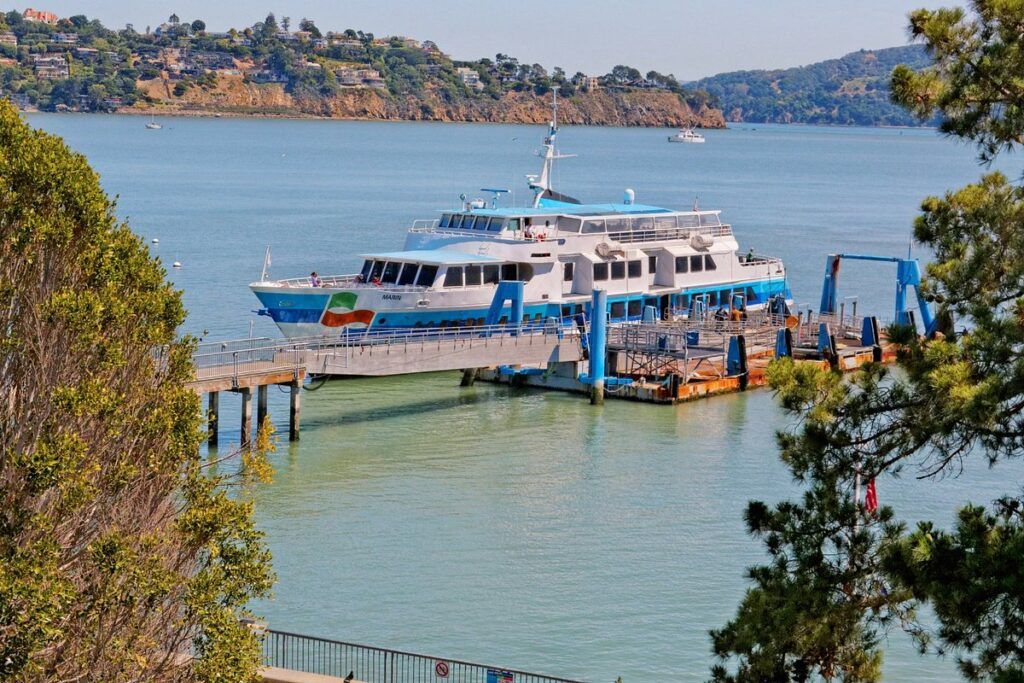
The Sausalito route isn’t as frequent but still offers solid daily service. Most crossings take 25–35 minutes, but give yourself extra time for boarding and getting off.
Tiburon ferries start mornings at 8:10 AM from Gate B, with midday and afternoon trips too.
Seasonal and Holiday Variations
Ferry schedules shift throughout the year to keep up with tourism and holiday travel. Summer (June-August) usually brings more service, with extra midday and weekend trips to handle the crowds.
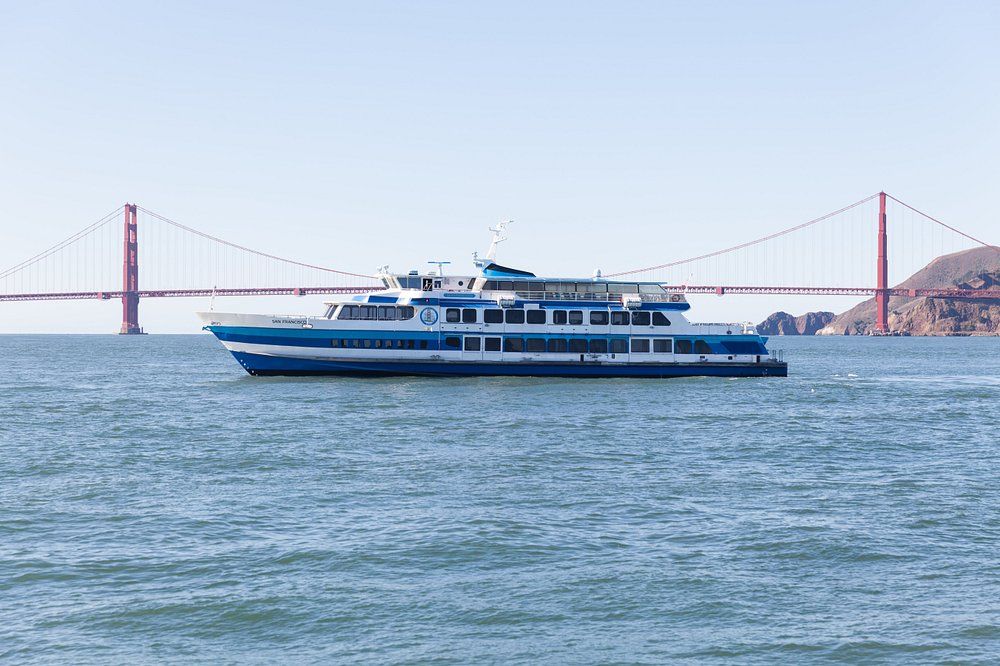
On big holidays like Memorial Day and Labor Day, ferries run on adjusted timetables—think weekend schedules, but sometimes with extra departures or longer hours if there’s a special event in San Francisco or Marin.
It’s smart to double-check the latest schedules before traveling during holidays. Winter holidays, especially around Christmas and New Year’s, sometimes mean fewer trips.
Special Service Days
The Golden Gate Ferry tweaks its schedule for big San Francisco happenings—Giants games, concerts, Fleet Week, and so on. On those days, you might find late-night returns that aren’t part of the regular routine.
For Giants games, extra ferries usually leave Larkspur about two hours before first pitch. After the final out, return trips start up about 30 minutes later and keep going until everyone’s on their way home.
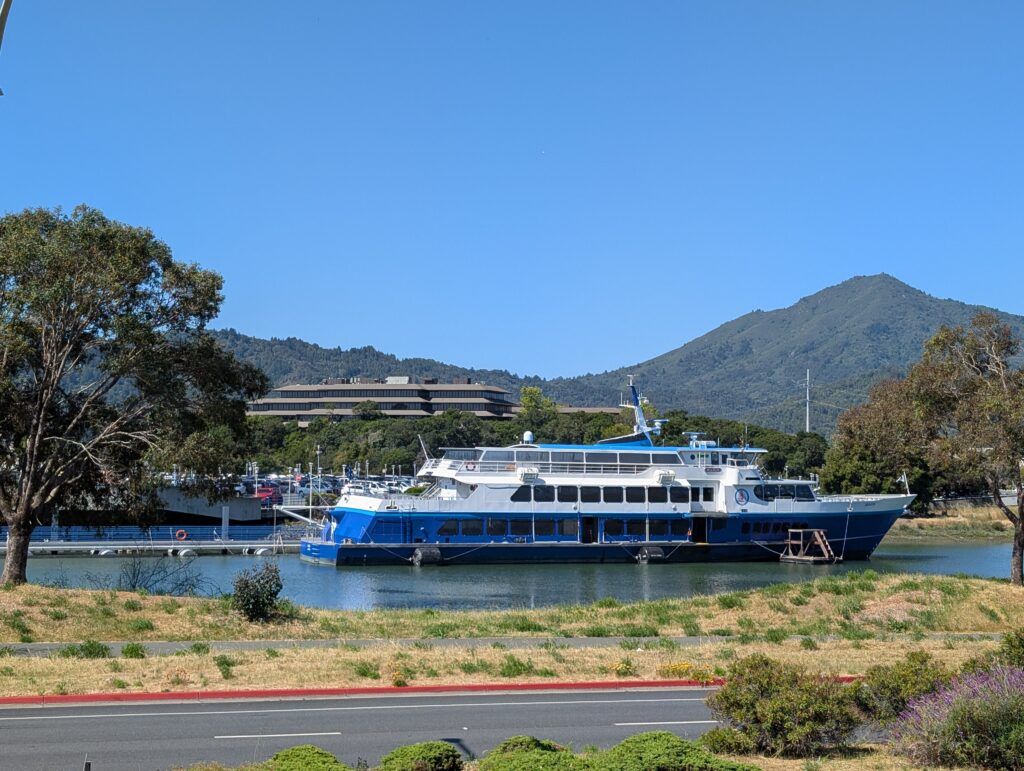
Big annual events like Bay to Breakers or Fourth of July can mean totally different schedules, sometimes with way more frequent service.
To stay in the loop about special service days, check the Golden Gate Ferry website, use their app, or just call customer service if you prefer talking to a real person.
Fare Payment and Discounts
Marin County ferries offer a bunch of payment options and discounts to keep things affordable and easy. Knowing what’s available can actually save you a bit of cash and hassle.
Clipper Card and Contactless Payments
Clipper is the go-to fare payment method for Marin County ferries. The reloadable card knocks 10% off the adult cash fare for local trips. Just tap your card when you board—no need to fumble for change.

Buy a ticket directly and you’ve got 90 days to use it, which is handy if you’re hanging around for a while or just like some flexibility.
Most ferry terminals take credit and debit cards, and plenty have self-serve kiosks so you can skip the lines—especially helpful when it’s busy.
Discount Programs
There are several discount programs for different groups. Clipper START gives a hefty 50% off most Golden Gate ferry rides for qualifying low-income adults living in the Bay Area.
Seniors (65+), youth (0-18), and people with disabilities get reduced fares on many routes. Some services even let these passengers ride free, no ticket required.

Military folks and Medicare cardholders might also get discounts on certain routes. Bring your ID just in case—you never know when you’ll need it.
If you’re traveling in a big group (10 or more), ask about group discounts. It’s a solid way to save for family get-togethers or work outings.
Transfers Between Modes
Ferry tickets often come with free or discounted transfers to connecting buses within a set time window. That makes it easier (and cheaper) to string together a longer trip.
When you transfer between ferries and buses, your Clipper card figures out the right fare and applies any available transfer discounts. It’s one less thing to think about.
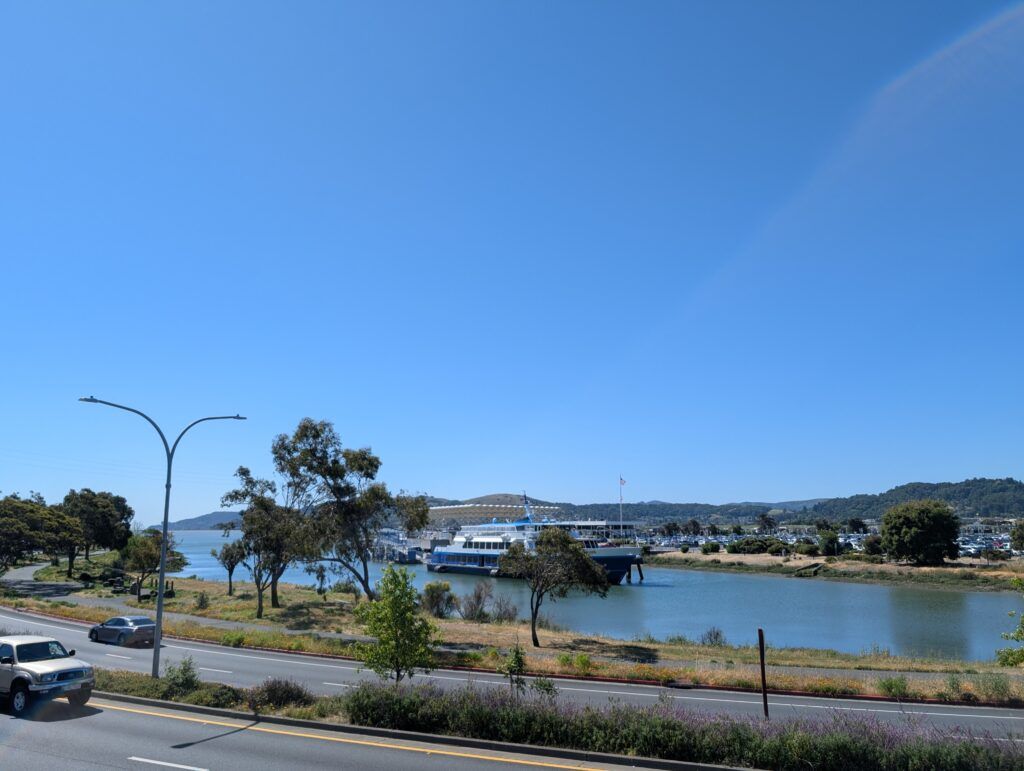
Some routes have special combo tickets that bundle ferry rides with connecting transport to popular spots like Muir Woods or the Marin Headlands. Super useful for tourists, honestly.
If you’re planning to hop on another bus or train after the ferry, ask the staff about transfer options before you get off. It never hurts to double-check.
Luxury stays to cozy cottages await, all with instant booking. Find the best deals!
Browse Marin Stays
Integrating Ferries With Other Transit Options
Marin County’s ferries link up with all sorts of transportation, making it possible to get around the Bay Area without a car. It’s a pretty smooth network for both commuters and visitors.
Golden Gate Transit Bus Transfers
Golden Gate Transit buses run straight to ferry terminals in Marin. They try to match up schedules with ferry arrivals and departures, so you don’t end up waiting around forever. You can catch a bus to the Larkspur Ferry Terminal from different spots in Marin.
Using a Clipper card makes switching between bus and ferry a breeze. If you’re heading out of Marin County, you’ll pay the full regional fare on Marin Transit but get an automatic transfer credit.
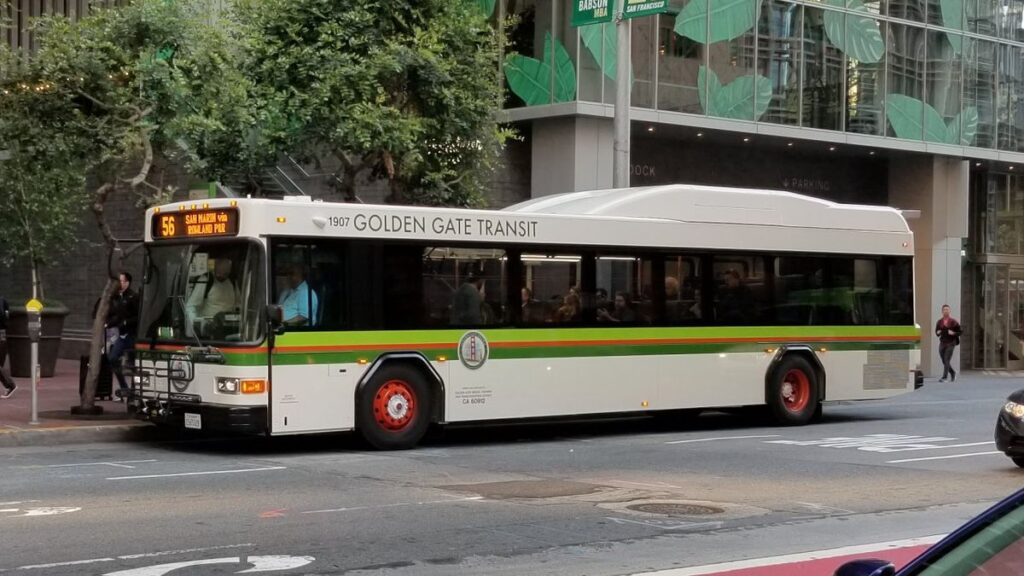
The Connect2Transit program encourages shared rides and other options, aiming to cut down on traffic and pollution. Not a bad idea, honestly.
You’ll usually find bus schedules posted at ferry terminals, and real-time info is available through transit apps.
Connections to Trains
The SMART train is a key rail link for ferry riders in Marin. The Larkspur SMART station sits within walking distance of the Larkspur Ferry Terminal, so it’s not a tough connection.
This setup is part of Marin’s Mobility Hub Plan, which looks at how to improve connections at nine different rail and ferry stations. The idea is to make switching between modes as painless as possible.
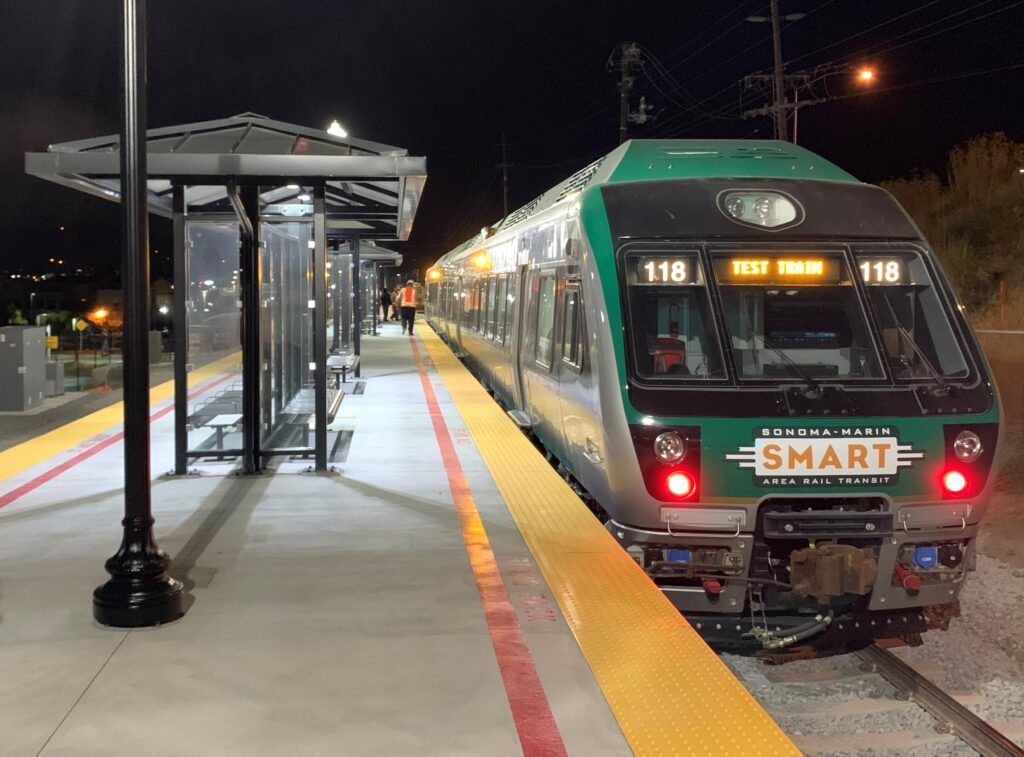
Train and ferry schedules try to line up when they can. Digital displays at both places show upcoming departures, so at least you know if you’re about to miss your ride.
For out-of-towners, this train-ferry combo is a great way to get between Sonoma County, Marin, and San Francisco—no car needed.
Biking and Walking Access
Marin ferry terminals come with bike racks and secure spots for cyclists. Larkspur even has covered bike parking, which is nice if you’re worried about rain or sun.
Walking paths connect the terminals to nearby neighborhoods and shopping. Larkspur Landing, right by the ferry, has shops and restaurants close enough to reach on foot.
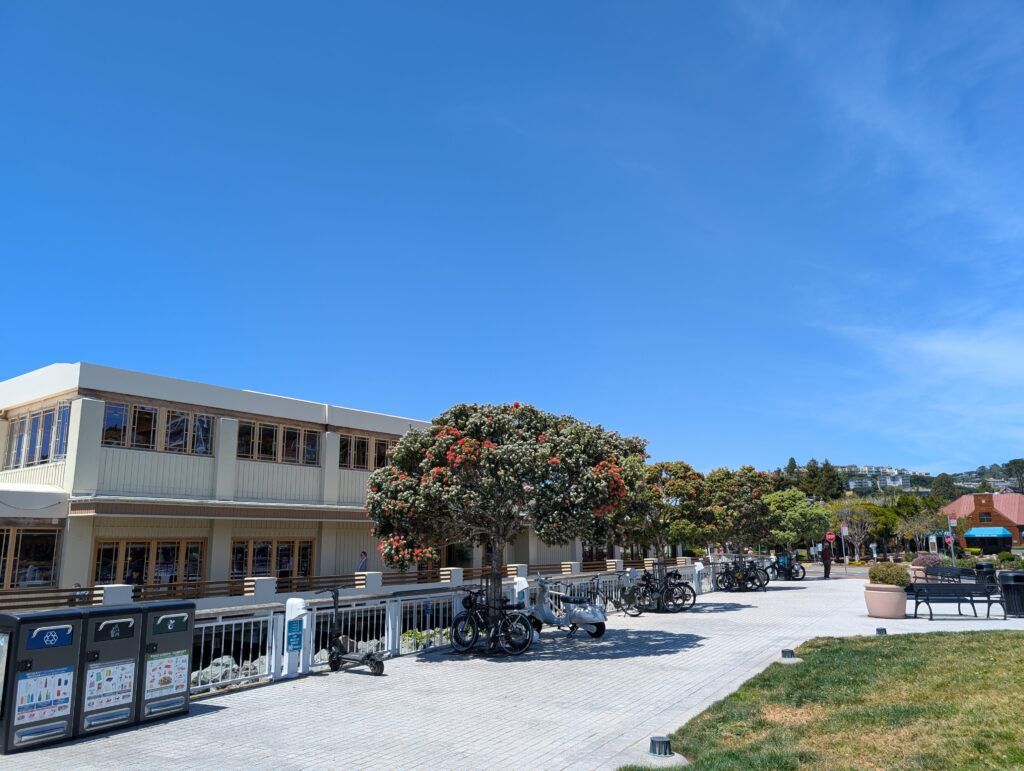
Most ferries let you bring your bike onboard, so you can ride at both ends of your trip. It’s a favorite with both commuters and weekend cyclists.
Dedicated bike lanes lead to most terminals, and the Bay Trail offers car-free paths near some spots, making it safer for everyone.
You’ll usually see maps with walking and biking routes at terminal entrances—worth a glance if you’re new around here.
Onboard Experience and Amenities
Ferry rides in Marin County mix convenience with a bit of comfort. You’ll find practical amenities and some pretty great views along the way.
Dining and Refreshments
Golden Gate Ferry boats have full-service refreshment stands where you can grab snacks or a drink. It’s a good excuse to enjoy the Bay views with something in hand.
Most ferries offer light fare—think sandwiches, chips, cookies, and a range of drinks. Prices are a bit higher than on land, but that’s kind of expected for transit food.

Plenty of regulars bring their own food and coffee (especially in the morning), and that’s totally fine on all routes.
On weekends and holidays, you might see more food options. Just keep in mind, eating areas are limited, so you might end up munching at your seat.
Bike and Pet Policies
Bikes are welcome on all Marin County ferries. Every vessel has dedicated bike storage, but it can fill up fast during rush hours or weekends.
You don’t pay extra to bring your bike. If you’re cycling, show up 10-15 minutes early—peak times get crowded, and spots go quick.
Service animals are always allowed. Non-service pets need to stay in carriers for the whole trip. Some routes have extra rules, so check the website before bringing your pet along.
E-bikes and big cargo bikes might have special requirements, mostly because of their size. If you’re unsure, ferry staff can help you figure out where to stash your ride.
Accessibility Features
All Marin County ferries focus on accessibility. Ramps or lifts help with boarding, accessible seating is available, and ADA-compliant restrooms are on board for anyone who needs them.
Priority seating sits near the entrances for seniors and passengers with disabilities. Crew members are happy to help if you ask—don’t be shy.
The main areas offer comfy seats and good views. There are indoor, climate-controlled cabins for bad weather, plus outdoor seating for those iconic Golden Gate and city skyline shots.
You’ll hear and see announcements throughout the trip. If you need extra help, arriving 15-20 minutes before departure gives the crew time to assist you with boarding.
Popular Activities and Destinations by Ferry
Marin County ferries connect you to all kinds of adventures around the Bay. Whether you’re after outdoor fun, shopping, or seasonal events, it’s a pretty handy way to reach some classic local spots.
Recreational Opportunities
Angel Island is a top pick for outdoor lovers—catch the ferry from Tiburon. You can hike the 5-mile loop for killer views of San Francisco, the Golden Gate, and Alcatraz. If hiking’s not your thing, rent a bike and cruise the trails.
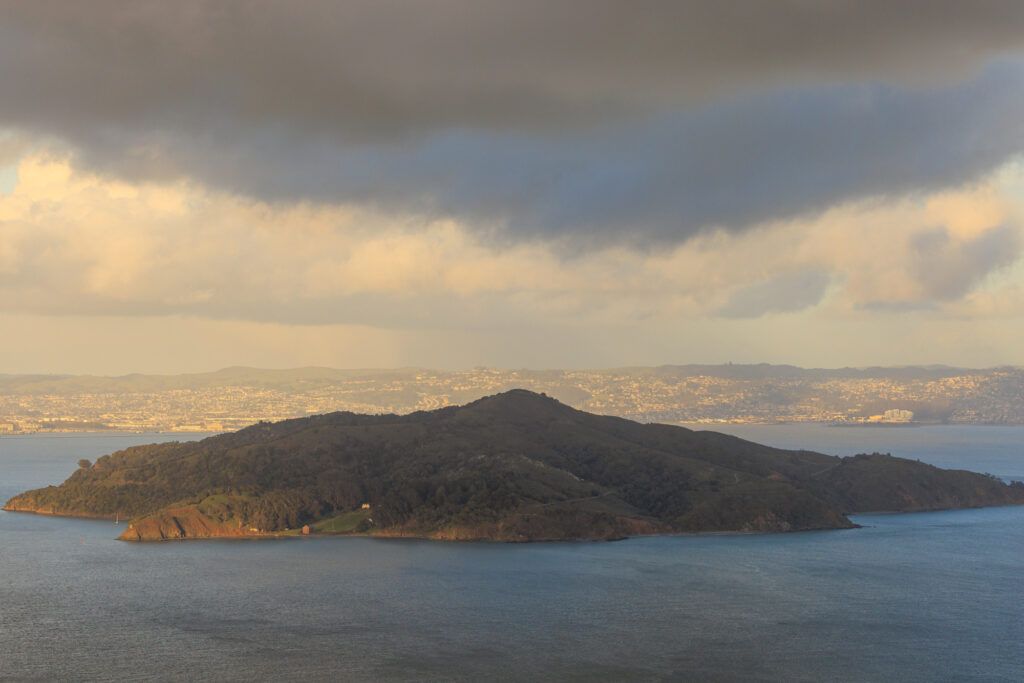
Alcatraz Island, accessed by ferry from San Francisco, is packed with history. The audio tour of the old prison is honestly one of the best around. Tickets sell out fast in summer, so plan ahead.
Kayaking in Sausalito is another favorite. Rental shops sit close to the ferry terminal, so you can hit the water right after your ride. Richardson Bay’s calm waters are great for beginners.
Shopping and Local Attractions
Sausalito’s waterfront is steps from the ferry. You’ll find unique boutiques, art galleries, and souvenir shops along Bridgeway. It’s a hotspot for local artists and cool gifts.
Fisherman’s Wharf, reachable by ferry from Larkspur or Sausalito, has Pier 39 with its famous sea lions and loads of shopping. The Marketplace is packed with everything from souvenirs to gourmet treats.
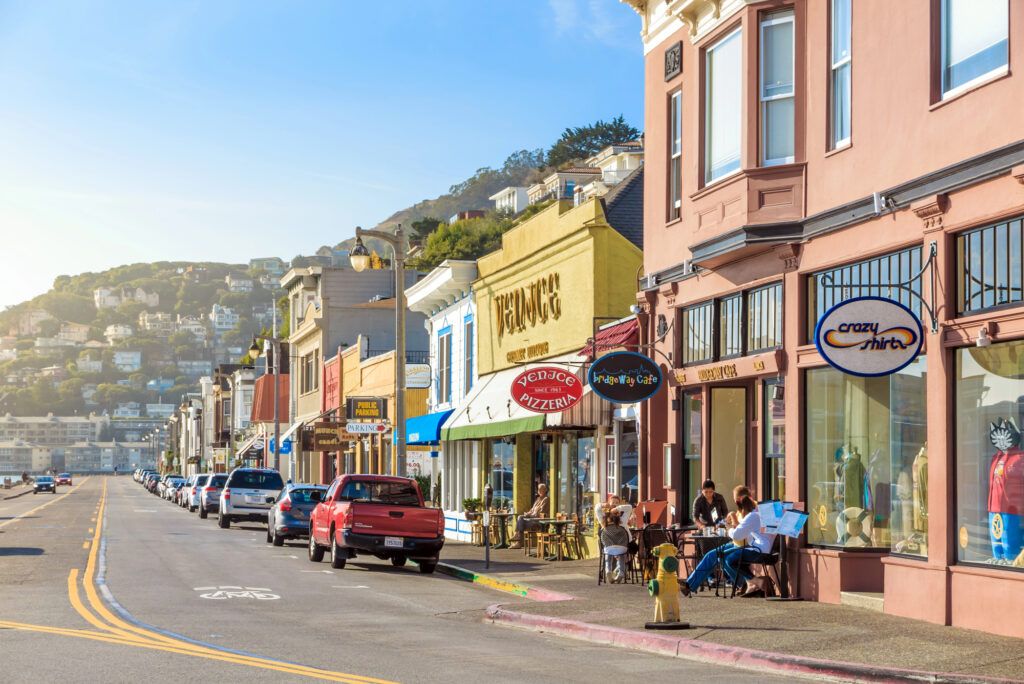
The Ferry Building in San Francisco doubles as a transit hub and a foodie’s dream. Inside, you’ll stumble across artisanal vendors, restaurants, and a lively Saturday farmers market with local Marin producers.
Events and Holiday Cruises
Special ferries run during big Bay Area events like Fleet Week in October. These cruises give you front-row seats for air shows and the naval parade—without fighting the crowds on shore. Tickets go fast, so don’t wait too long.
In December, you can catch holiday-themed ferry rides with festive decor, sometimes hot chocolate, and even carolers. Watching the San Francisco skyline light up from the water is pretty magical.
Summer Jazz Cruises are another treat—live music on evening crossings from June through September (mostly weekends). It’s a fun twist on the usual commute and a great way to enjoy local musicians while soaking in the views.
Sustainability and Environmental Impact
Ferry travel in Marin County keeps getting greener. New efforts focus on cutting emissions and giving people an alternative to driving across the Bay.
Ferry Emissions and Green Initiatives
Marin County ferry operators are jumping on new technology. The Sea Change ferry is a standout—it actually produces drinkable emissions. Seriously, it releases water vapor that’s remineralized into water passengers can drink.
They’re adding more vessels with lower carbon footprints, using cleaner fuels and engines that pollute less as they cross the bay.
Many ferry terminals now run on solar panels, cutting down on grid use. Waste management systems on newer boats help keep pollution out of the Bay, which is obviously a big win for the local environment.
Reducing Traffic and Congestion
When you hop on a ferry, you’re taking cars off the road and cutting down on carbon emissions—pretty impressive for a boat ride. One ferry can carry hundreds of people who might otherwise be stuck in traffic, inching their way across the Golden Gate Bridge.
Marin Commutes connects locals and visitors to greener ways of getting around. They’ve got programs that nudge folks toward mixing ferry rides with things like:
- Biking (ferries have spots for your bike)
- Electric shuttles that get you to the terminal
- Carpooling to the docks
Ferry schedules tend to sync up with when people actually need them, especially during those gnarly rush hours. That way, fewer cars clog up Highway 101 and the bridge when everyone’s trying to get somewhere fast.
Choosing the ferry isn’t just good for Marin County’s environmental efforts—it gives you a killer view of the San Francisco skyline, too. Not a bad way to start or end your day, right?
Find available hotels and vacation homes instantly. No fees, best rates guaranteed!
Check Availability Now


